|
ID |
Nickname |
Country / City |
Languages |
Taxonomies |
Comment |
Project / Group |
Map |
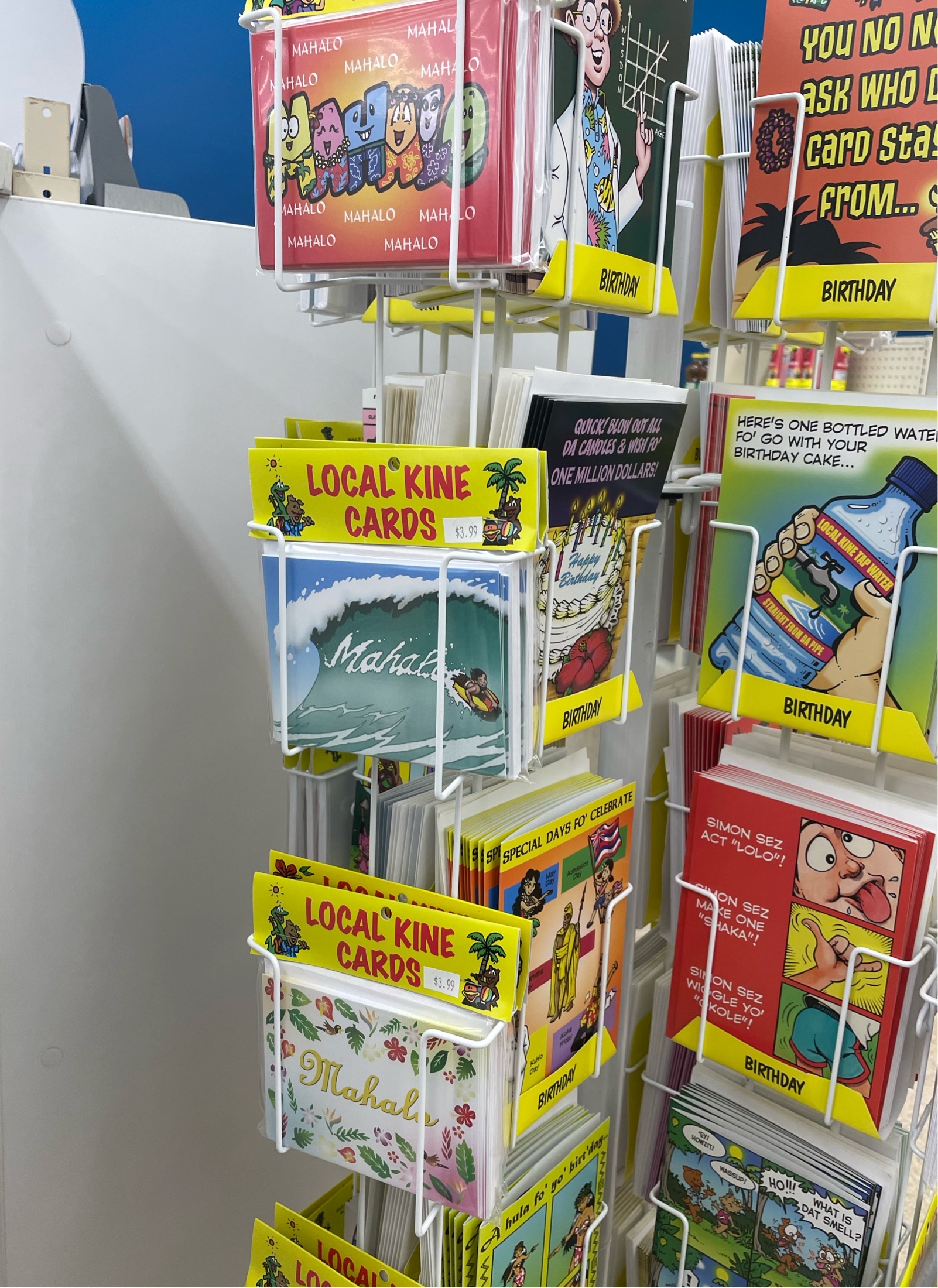
|
43898
|
|
United States
Aiea
|
|
|
EL-S Domain: Pearlridge Longs Drugs
Purpose : To give to your family or friends, for a birthday or gathering
Audience; Family members or friends who might be local and want their members to have a fun time while reading the card.
|
Multilingual Hawaiʻi
|
|
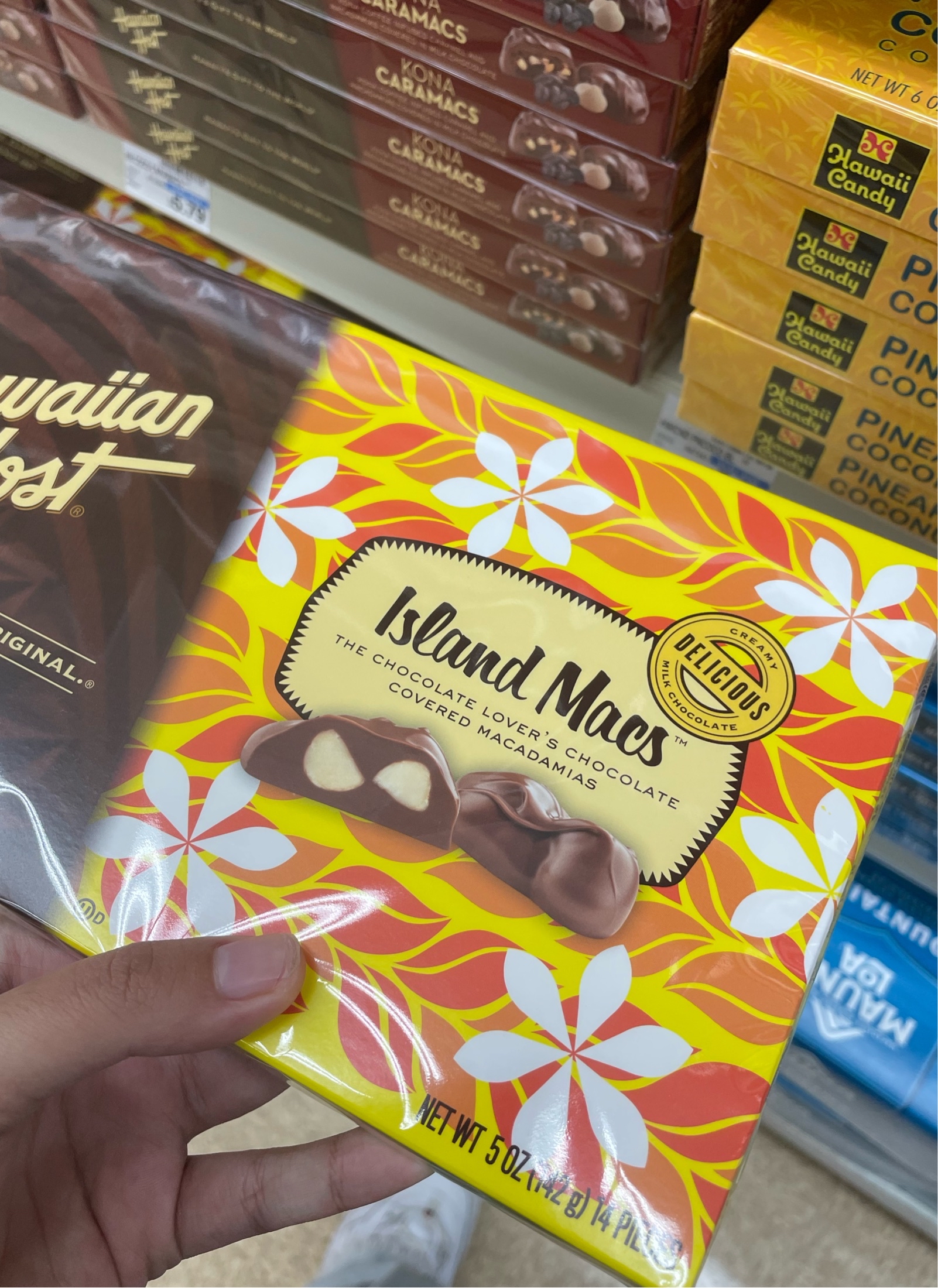
|
43897
|
|
United States
Aiea
|
|
|
EL-S Doamin: Longs Drugs Pearlridge downtown
Purpose: For someone to give or to treat themselves to an island treat they might not have had before
Audience: Those who are looking to get something for the family as a gift and share with them.
|
Multilingual Hawaiʻi
|
|
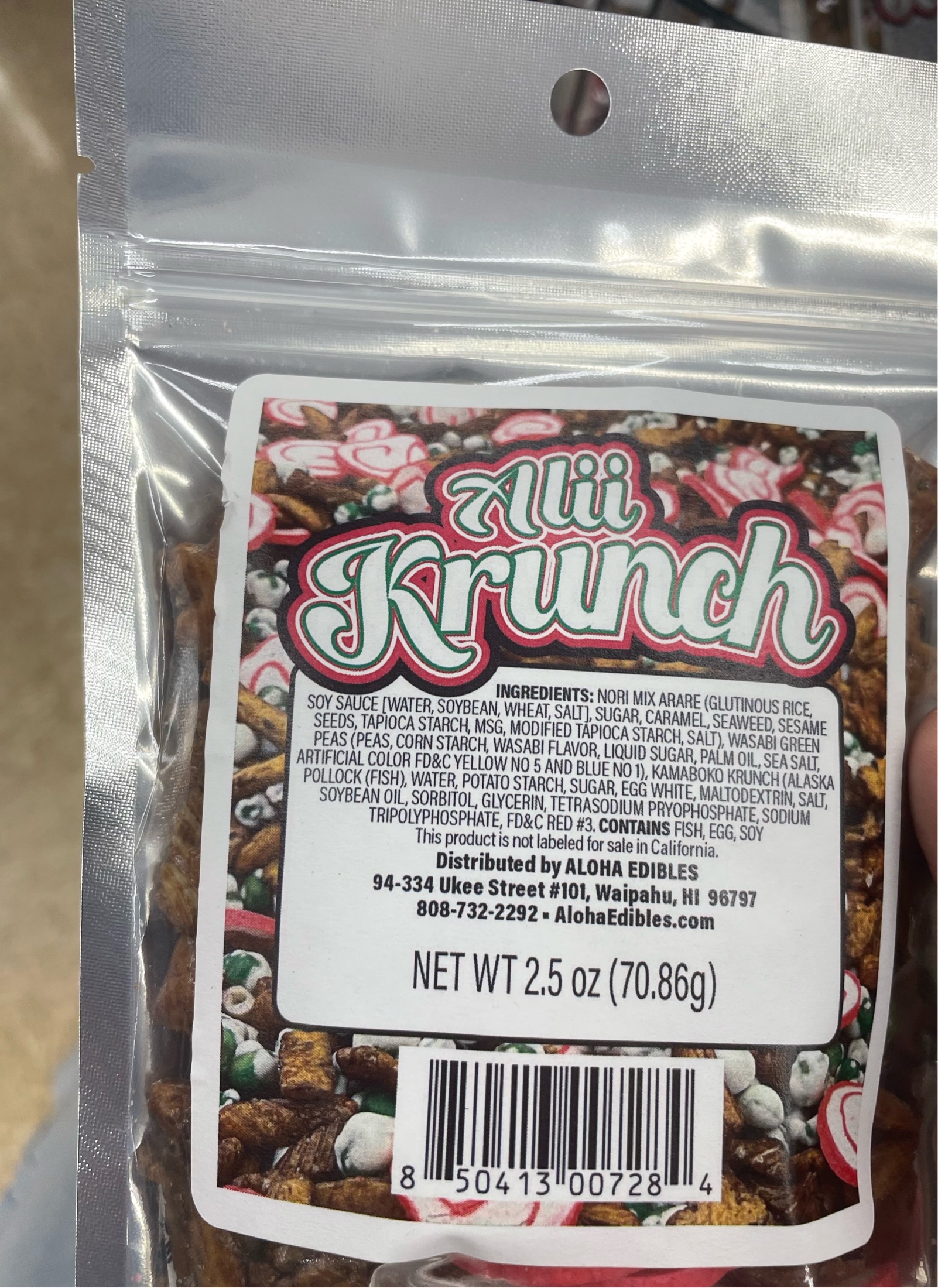
|
43896
|
|
United States
Aiea
|
|
|
EL-S Domain : Pearlridge Downtown Longs Drugs
Purpose: Ali’i means chief, this is just another delicious snack that lots of people enjoy
Audience: Those who shop and decide that they want something they want to snack on and decide on a local treat.
|
Multilingual Hawaiʻi
|
|
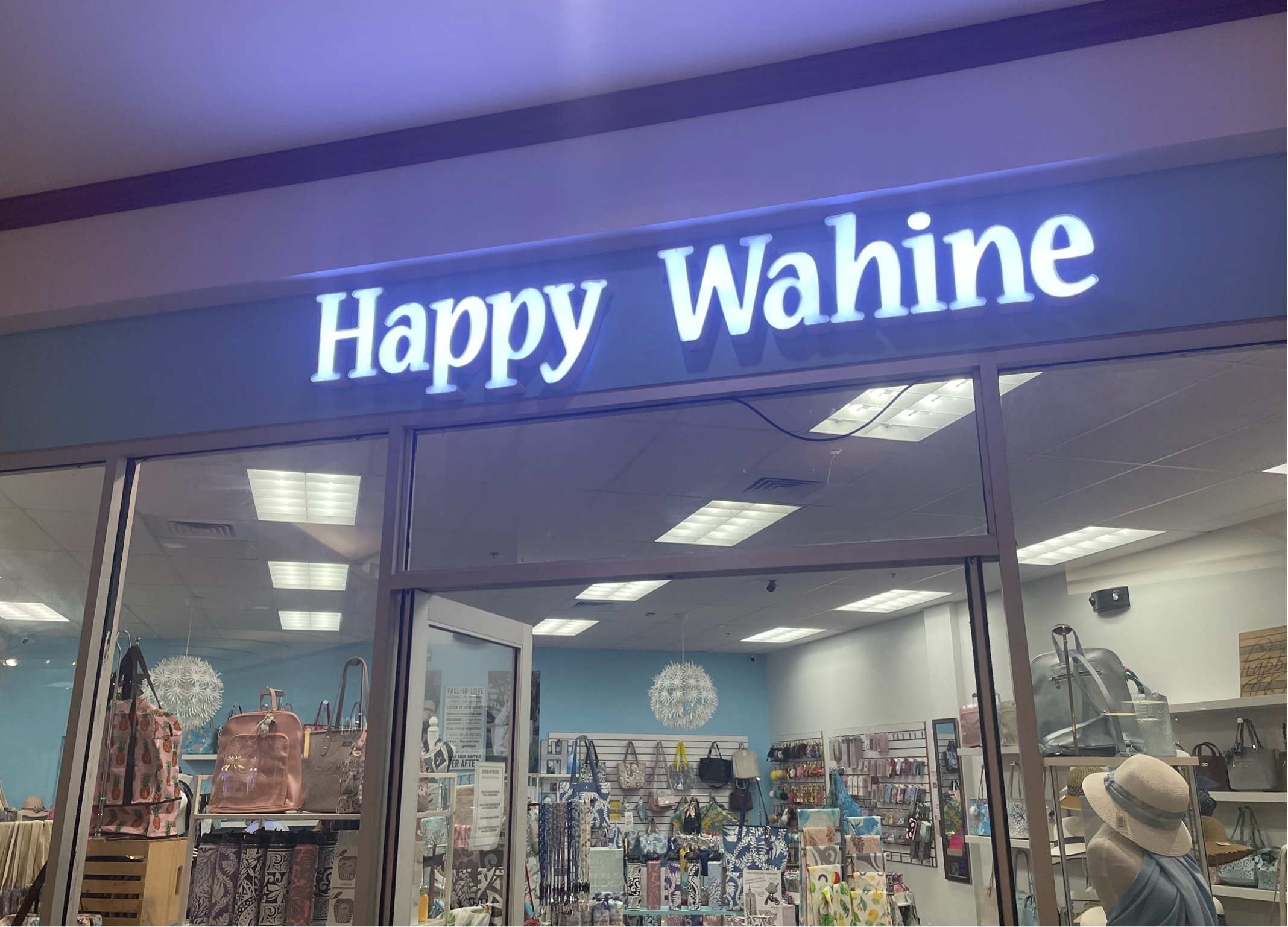
|
43895
|
|
United States
Aiea
|
|
|
EL-S Domain: Pearlridge Center Uptown
Purpose: It’s a local owned store, and the owner makes these Hawaiian designs herself.
Audience: Mostly attracts tourists as well as lots of locals as well and mostly Japanese people.
|
Multilingual Hawaiʻi
|
|

|
43894
|
|
United States
Honolulu
|
|
|
EL-S Domain: Computer case from T&C surf
Purpose: It’s a brand, that T&C sells, and most locals, have an item of this brand
Audience: The store itself may attract locals or those who like to surf/ go to the beach.
|
Multilingual Hawaiʻi
|
|
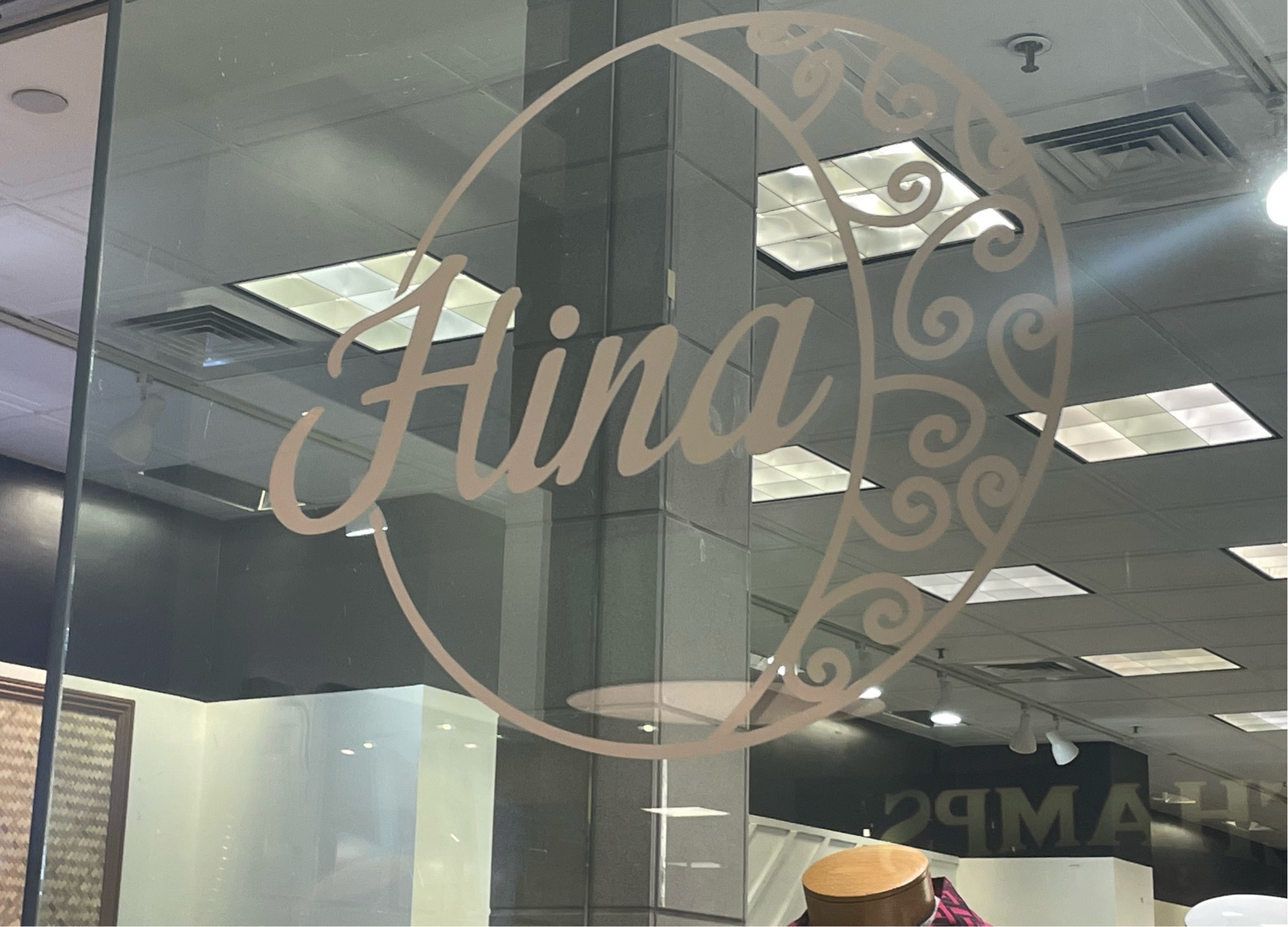
|
43893
|
|
United States
Aiea
|
|
|
EL-S Domain : Downtown Pearlridge Center
Audience: Its to help catch the others eyes, and see if there anything that local people might get or non-locals. Mostly to help bring in customers.
|
Multilingual Hawaiʻi
|
|
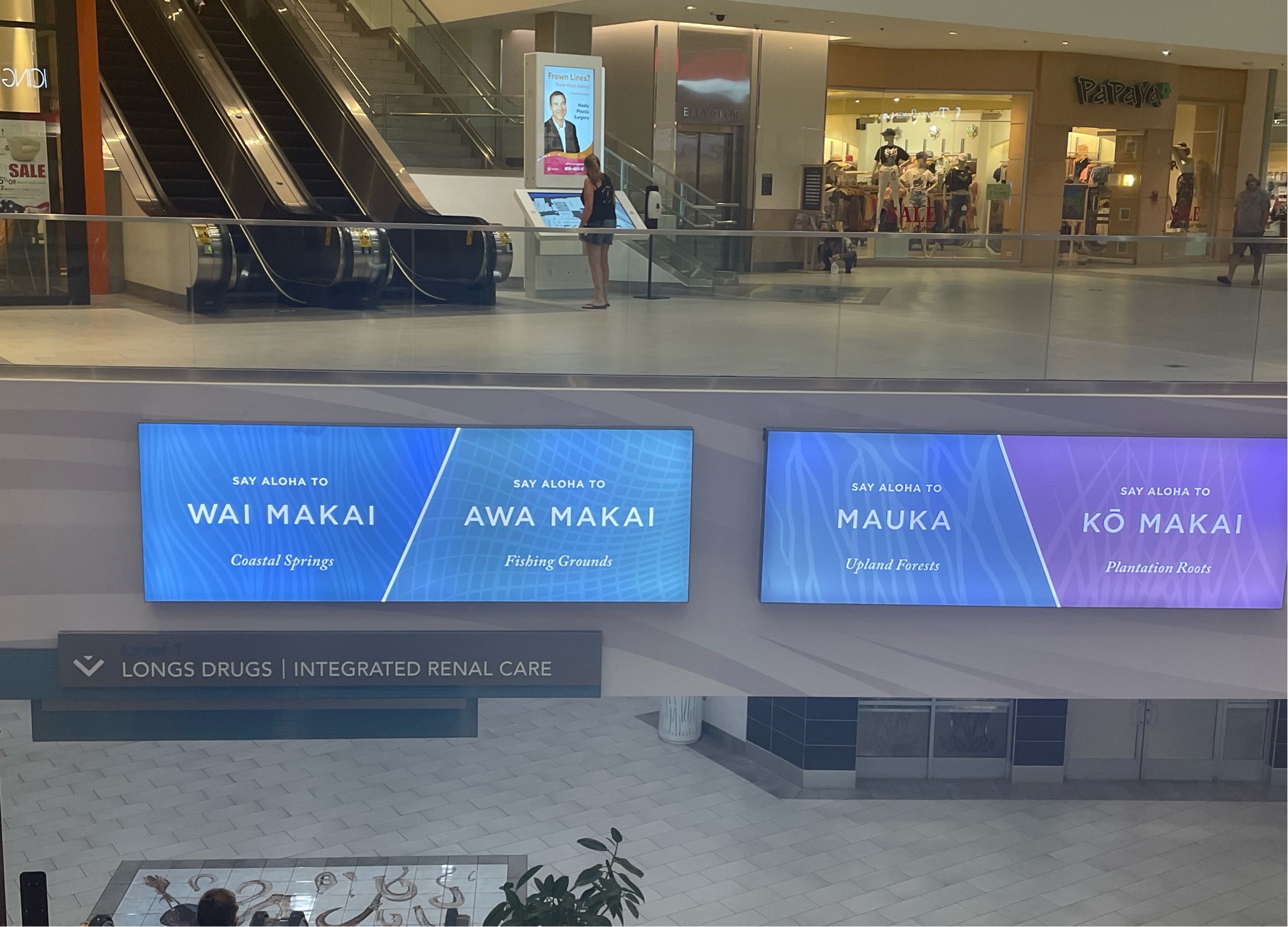
|
43892
|
|
United States
Aiea
|
|
|
EL-S Domain: Pearlridge Center downtown
This is to help difference the diffferent sides of the mall, one is the plantation while to other isn’t.
Audience: Customers that are walking in, and wanting to go to the other part of the mall.
|
Multilingual Hawaiʻi
|
|
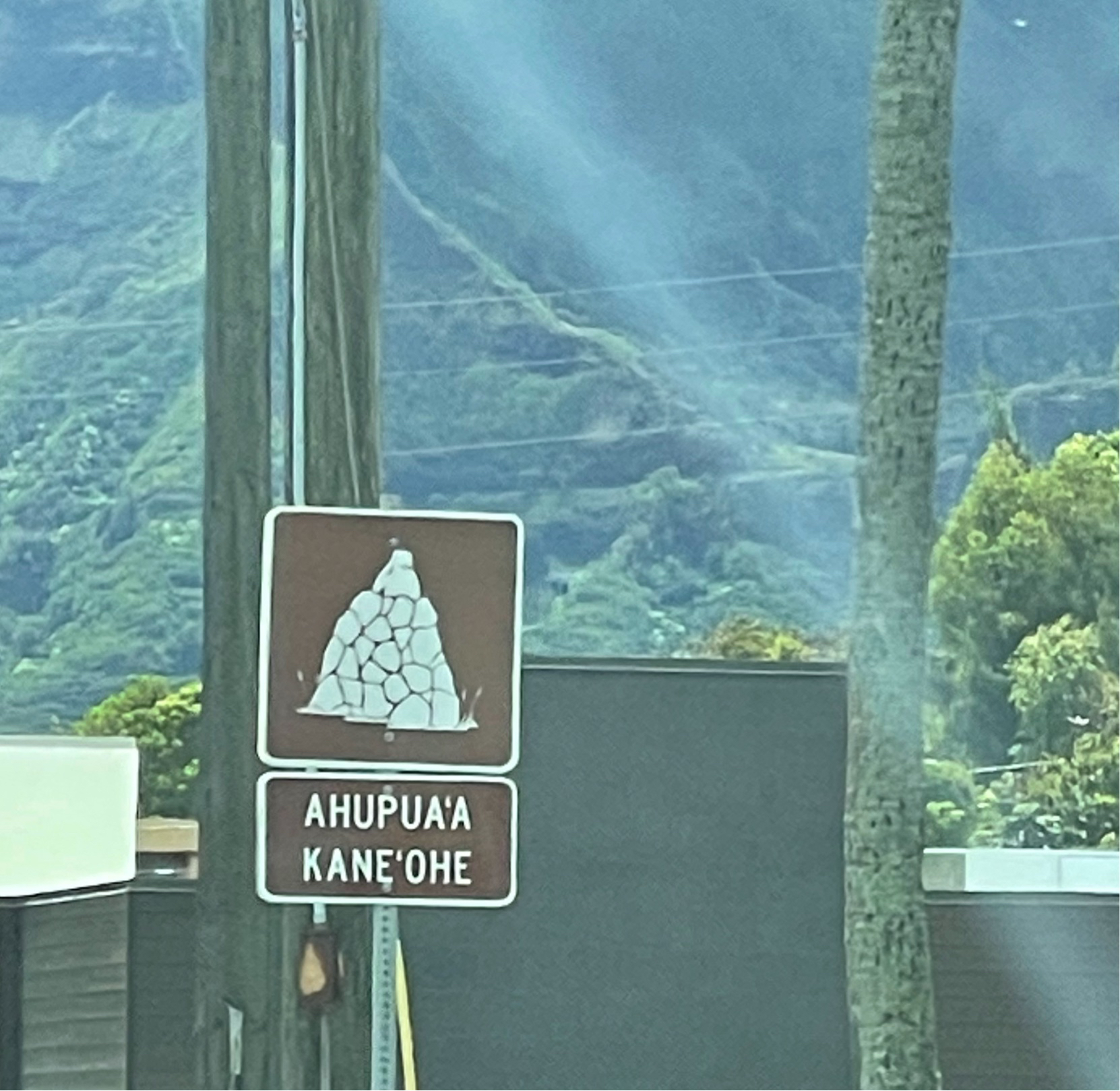
|
43891
|
|
United States
Kaneohe
|
|
|
SU
- medium: The sign is printed on a metal sign right off the side of the road.
- domain: The context of the sign is that there is an ahupua’a in Kāne’ohe.
- audience: The sign is intended for people who are driving by the sign. It is mainly intended for nonlocals and tourists.
- function: The sign is informing people who are not familiar with the island that an ahupua’a is nearby the area that the sign is located.
- language: The language that is dominant on this sign is Hawaiian.
The word ahupua’a is a Hawaiian term for a large traditional socioeconomic, geologic, and climatic subdivision of land.
|
Multilingual Hawaiʻi
|
|
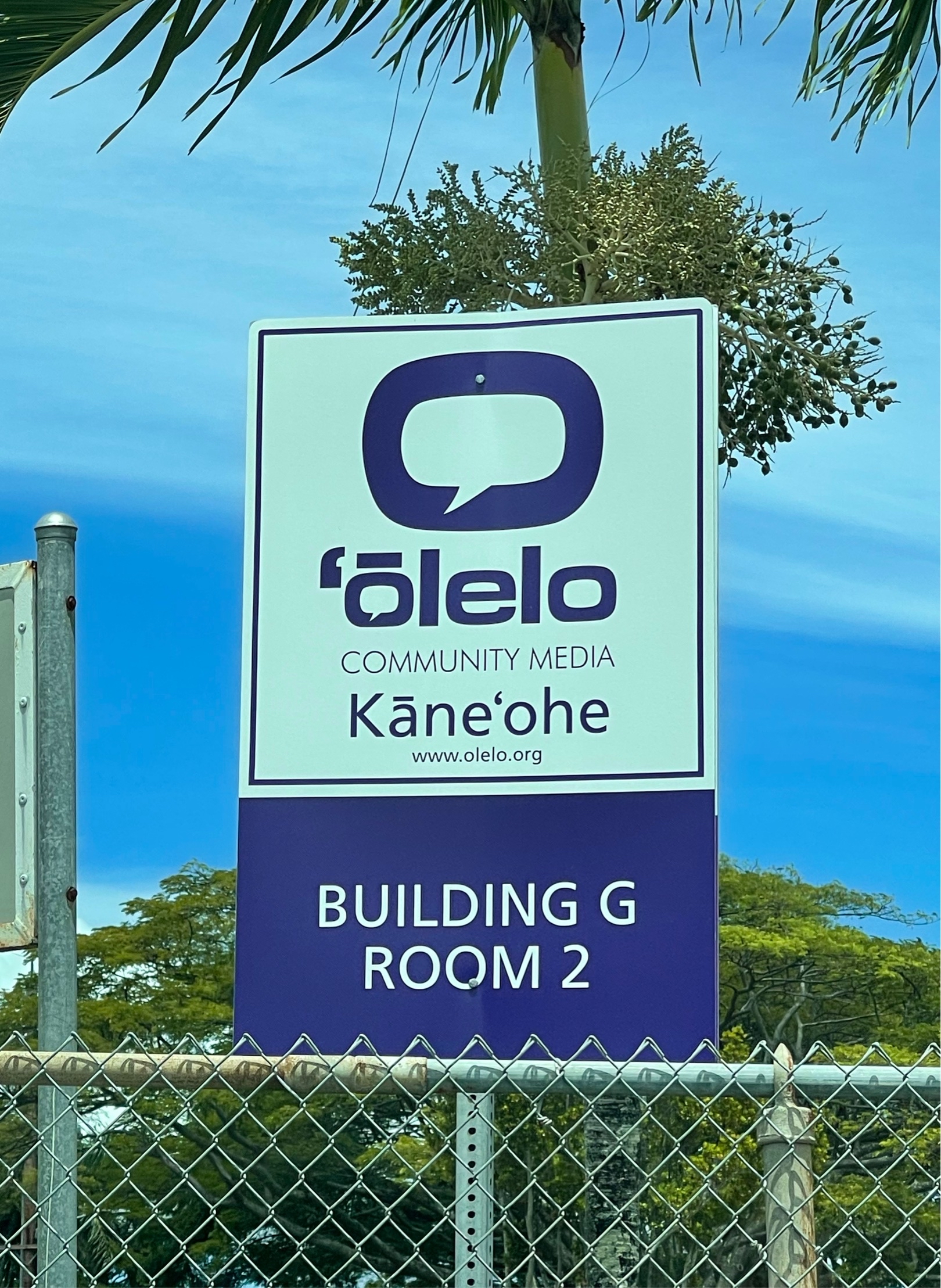
|
43890
|
|
United States
Kaneohe
|
|
|
SU
- medium: The sign is printed on a metal sign at the entrance of the S.W. King Intermediate School.
- domain: The context of the sign is ‘Ōlelo community media in Kāne’ohe.
- audience: The sign is intended for the people who are driving by the school’s entrance to see and also for the students who are involved or planning on getting involved with ‘Ōlelo.
- function: The sign is trying to inform people where the ‘Ōlelo media takes place on campus and also to inform people who are driving by that the intermediate school is involved with ‘Ōlelo community media.
- language: The language that is more dominant on the sign is English because there is more of it present but there are also a couple Hawaiian words.
The word ‘Ōlelo means “word, language, talk” in Hawaiian.
|
Multilingual Hawaiʻi
|
|
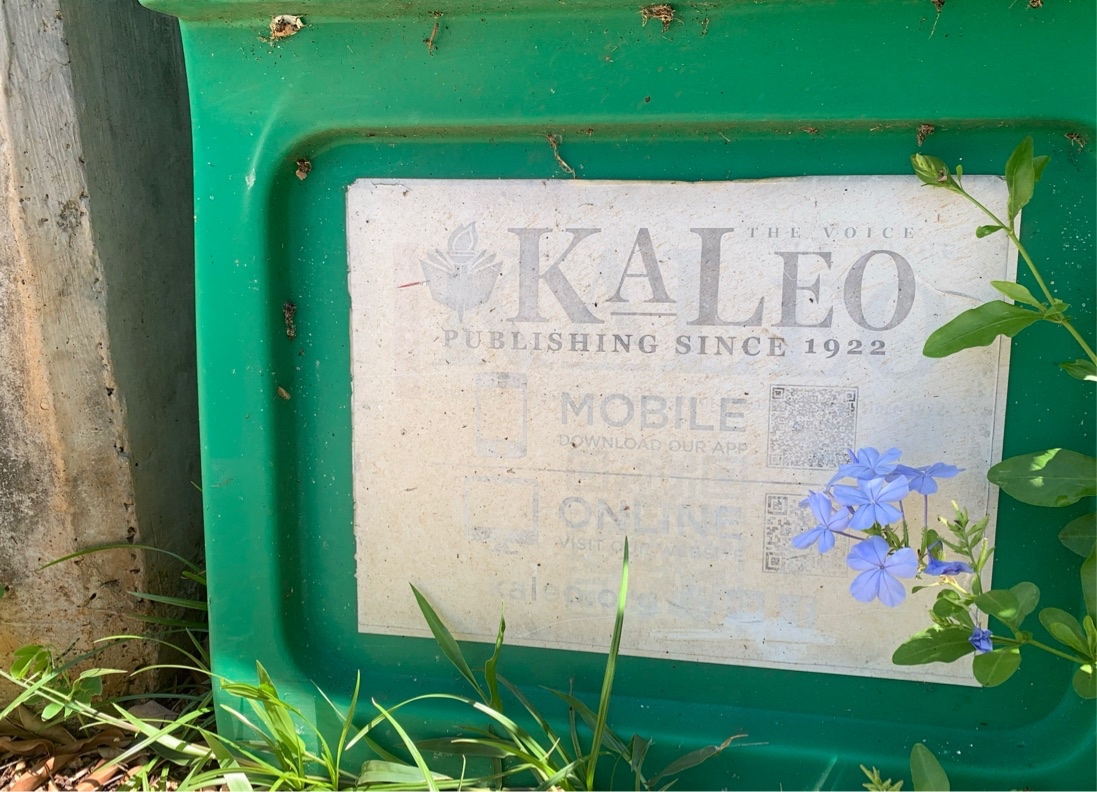
|
43691
|
|
ʻAmelika Hui Pū ʻIa
Honolulu
|
|
|
HK – Ka Leo is Hawaiian for “The Voice”. It is our Schools paper here at University of Hawaiʻi at Mānoa . Here is a newpaper box that students can grab paper from on the way to and from Campus Center. This is ment for the students here in UH Mānoa but I think only a few students here know what Ka Leo means. I think a lot of people is just aware of it rather then the definition which is “The Voice” and it stands perfectly what a newspaper is.
|
Multilingual Hawaiʻi
|
|

|
43690
|
|
ʻAmelika Hui Pū ʻIa
Honolulu
|
|
|
HK – Happy Wahine is Hawaiian and English with Wahine being woman. This is a spa unit that is probably target audience being Woman. This is a unit in the International Market Place.
|
Multilingual Hawaiʻi
|
|
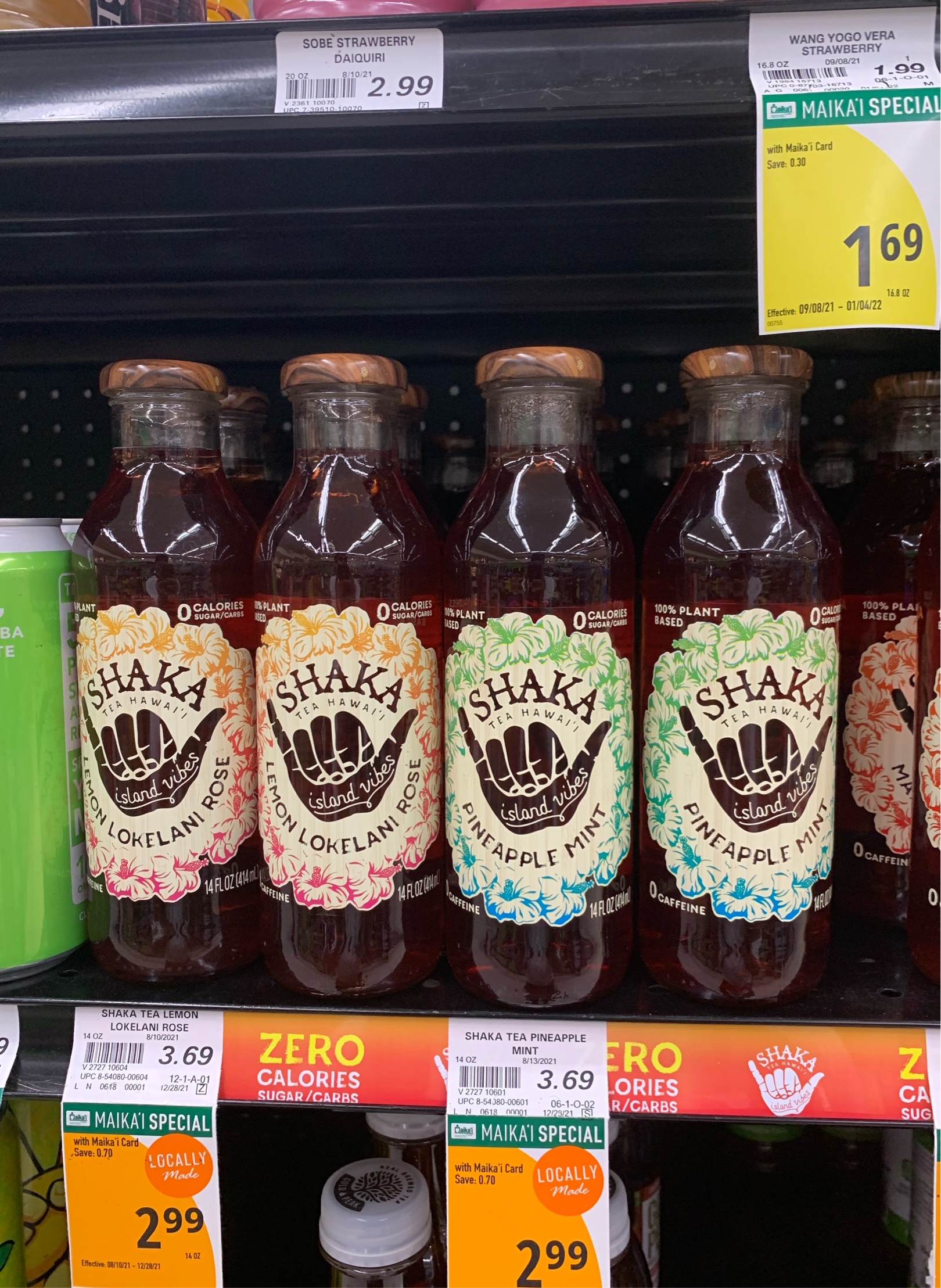
|
43689
|
|
ʻAmelika Hui Pū ʻIa
Honolulu
|
|
|
HK – Shaka is not Hawaiian. Rather its a term for hang loose used by surfers. The term has become more thoough a greeting and farwell sign here in Hawaiʻi. We dont say Shaka but the gestures is used more. Thats just what we call um. It has become our local culture to do it. In this case Hang Loose referese to the Tea to be very calming and chill. This is a product you can find at Foodland.
|
Multilingual Hawaiʻi
|
|
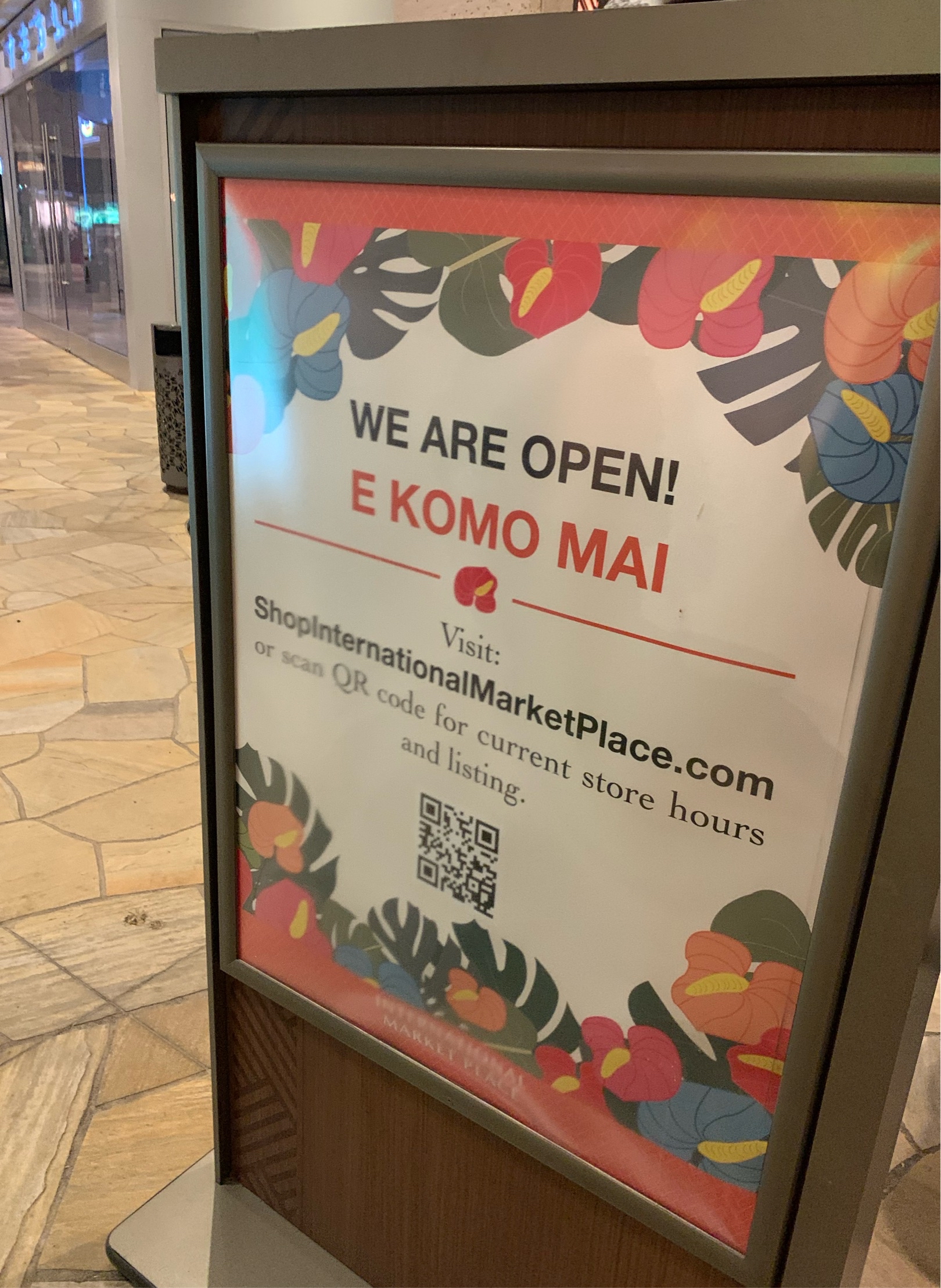
|
43688
|
|
ʻAmelika Hui Pū ʻIa
Honolulu
|
|
|
HK – E komo mai is Hawaiian for a Come on In – This is the rough translation but the literal defination being Enter towards the direction of the speaker. So it does not mean, “we are open!” even though we know this, the tourist may get comfused becasue this is meant to say, We are Open! “So come on in.”
|
Multilingual Hawaiʻi
|
|

|
43687
|
|
ʻAmelika Hui Pū ʻIa
Honolulu
|
|
|
HK – This is a sign placed in the International Market Place in Waikiki. This is a wonderful tourist sign with Aloha being the one word that everyone is familiare with. Love, Hello, Greetings, Good bye.
|
Multilingual Hawaiʻi
|
|
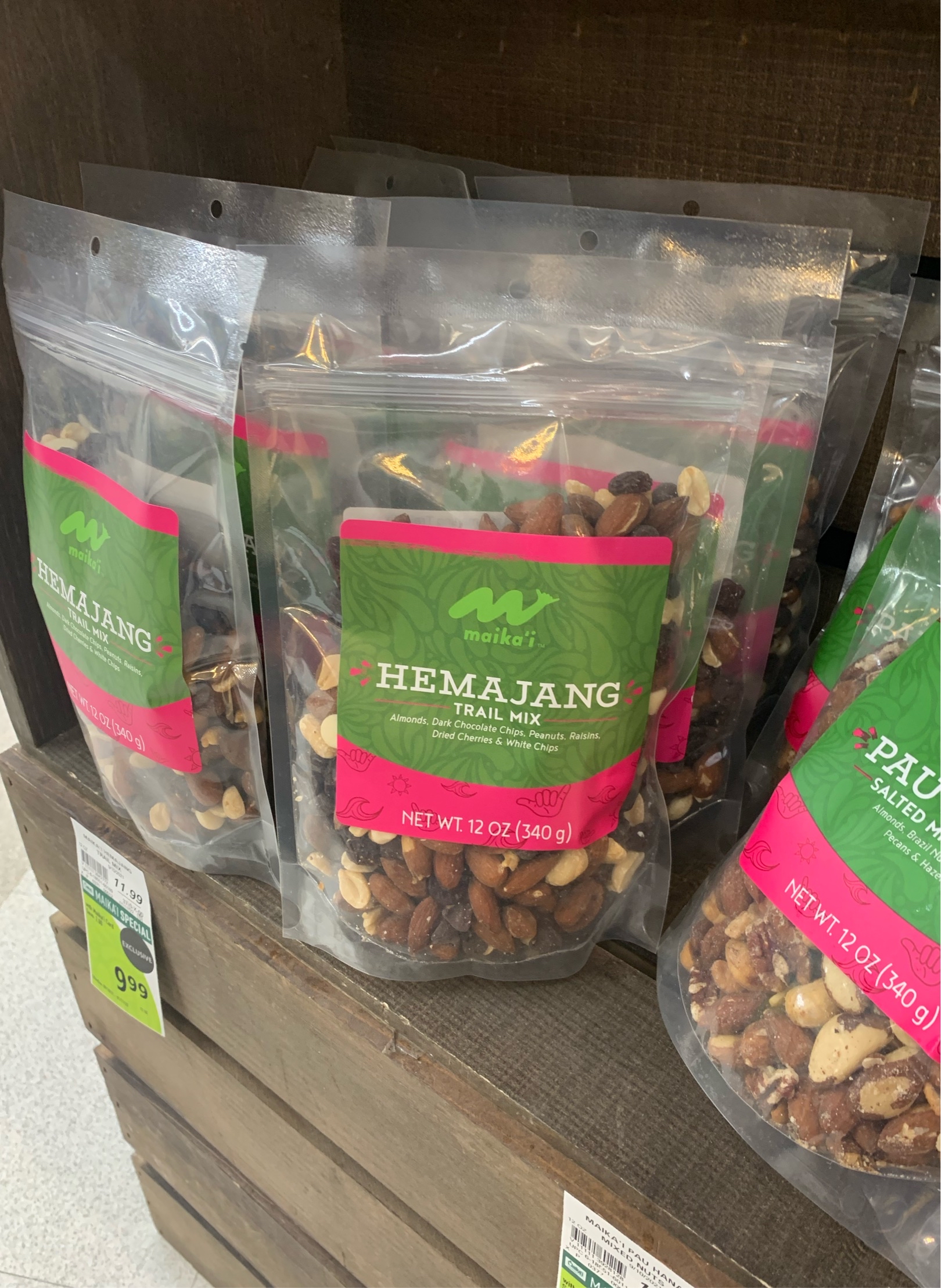
|
43686
|
|
ʻAmelika Hui Pū ʻIa
Honolulu
|
|
|
HK – Hammajang is a pidgin term for messed up. In this case this food item in Foodland is refering to a messed up mixture of nuts and other snacks contained. Its not messed up in quality rather the concept of messy being refered to the assortment of snacks in it.
|
Multilingual Hawaiʻi
|
|
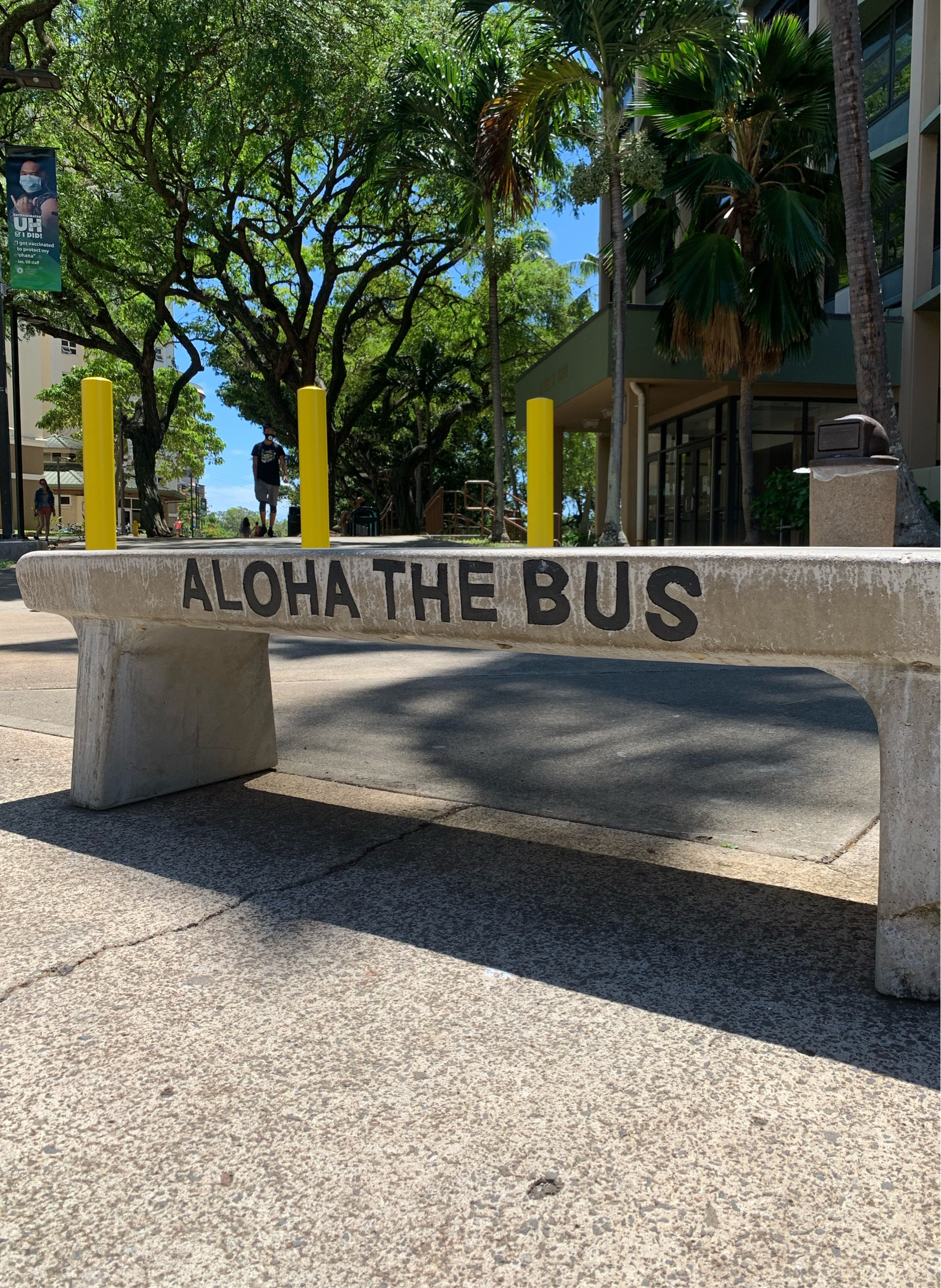
|
43685
|
|
ʻAmelika Hui Pū ʻIa
Honolulu
|
|
|
HK – There is Hawaiian in this but in a Pidgin Format. Although The Bus isnʻt pidgin the way they say can be considered Pidgin. “Aloha the bus” can be defined as “Love the bus.” This is a bus stop bench in fron of Gateway Hale. I dont think students even notice that its even there. But it is faced towards the road so it is showing appreciation towards the Bus Drivers that drive the busses.
|
Multilingual Hawaiʻi
|
|
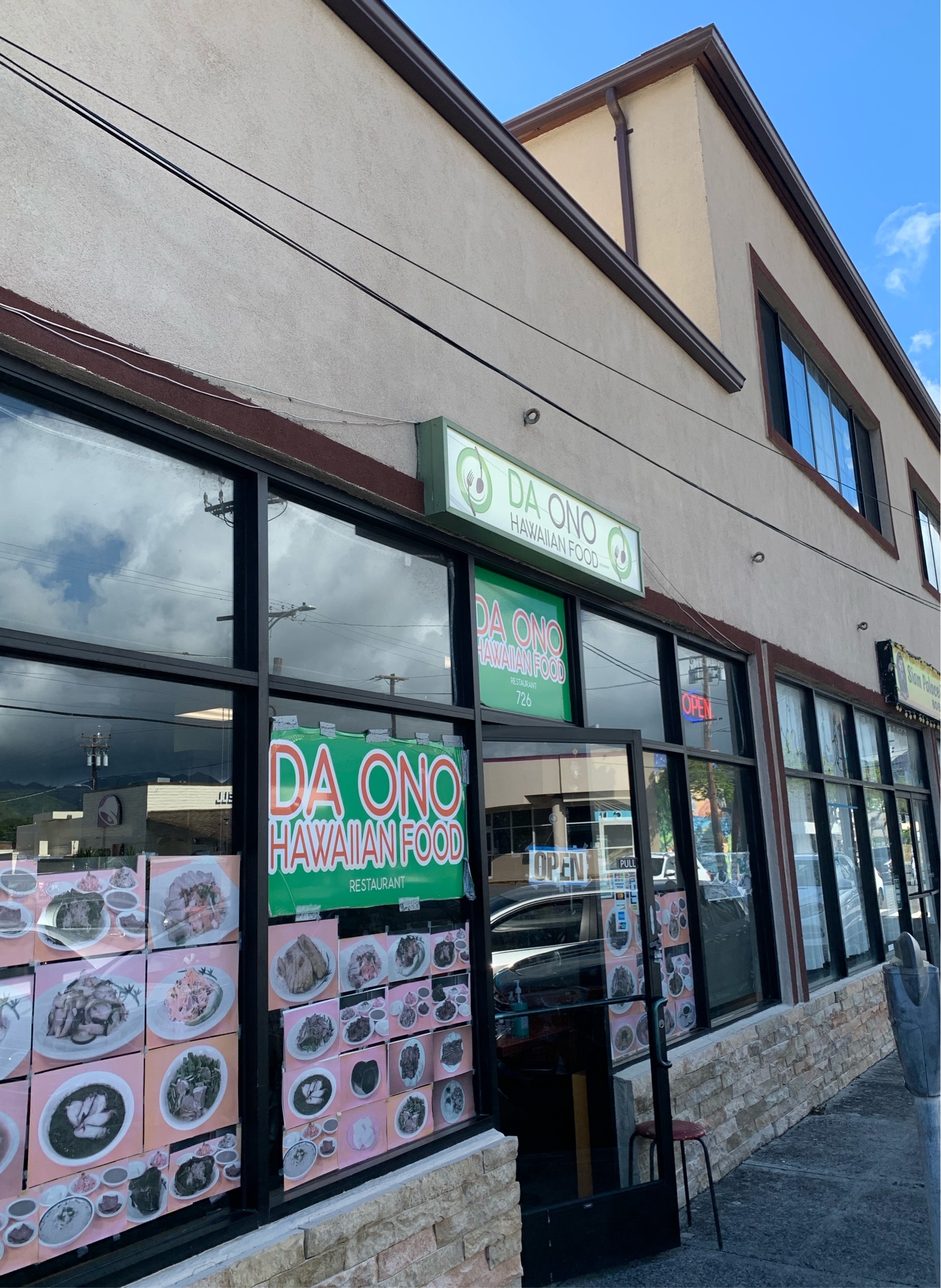
|
43684
|
|
ʻAmelika Hui Pū ʻIa
Honolulu
|
|
|
HK – Da Ono Hawaiian Food is an old restruant that has been around for a long time. Da Ono is Pidgin with Da being The and Ono being Delicious.
|
Multilingual Hawaiʻi
|
|
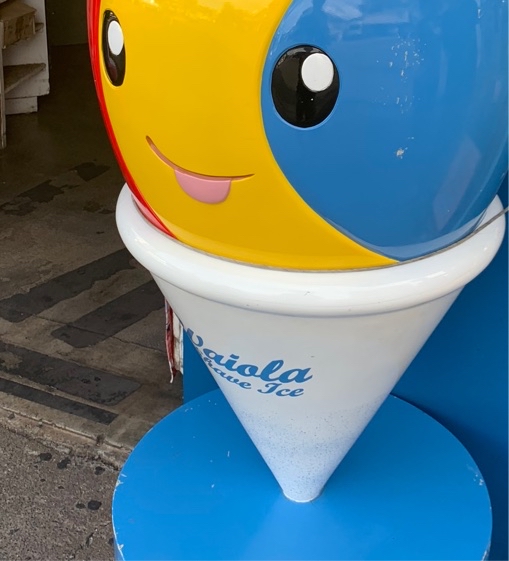
|
43438
|
|
United States
Honolulu
|
|
|
(HC)
Purpose: Statue of the mascot for Waiola Shave Ice, a popular dessert shop on Oahu.
Audience: Tourists for pictures, customers of the shop.
Format: ABS/Plaster statue of the shave ice mascot.
Message: "Shave ice" is derived from "Kakigori", a popular ice snack from Japan. After the plantation era, Hawaii had took substantial inspiration from the Kakigori into the creation of "Shave ice", essentially syrup poured over what is finely crushed, or "shavings" of ice.
|
Multilingual Hawaiʻi
|
|
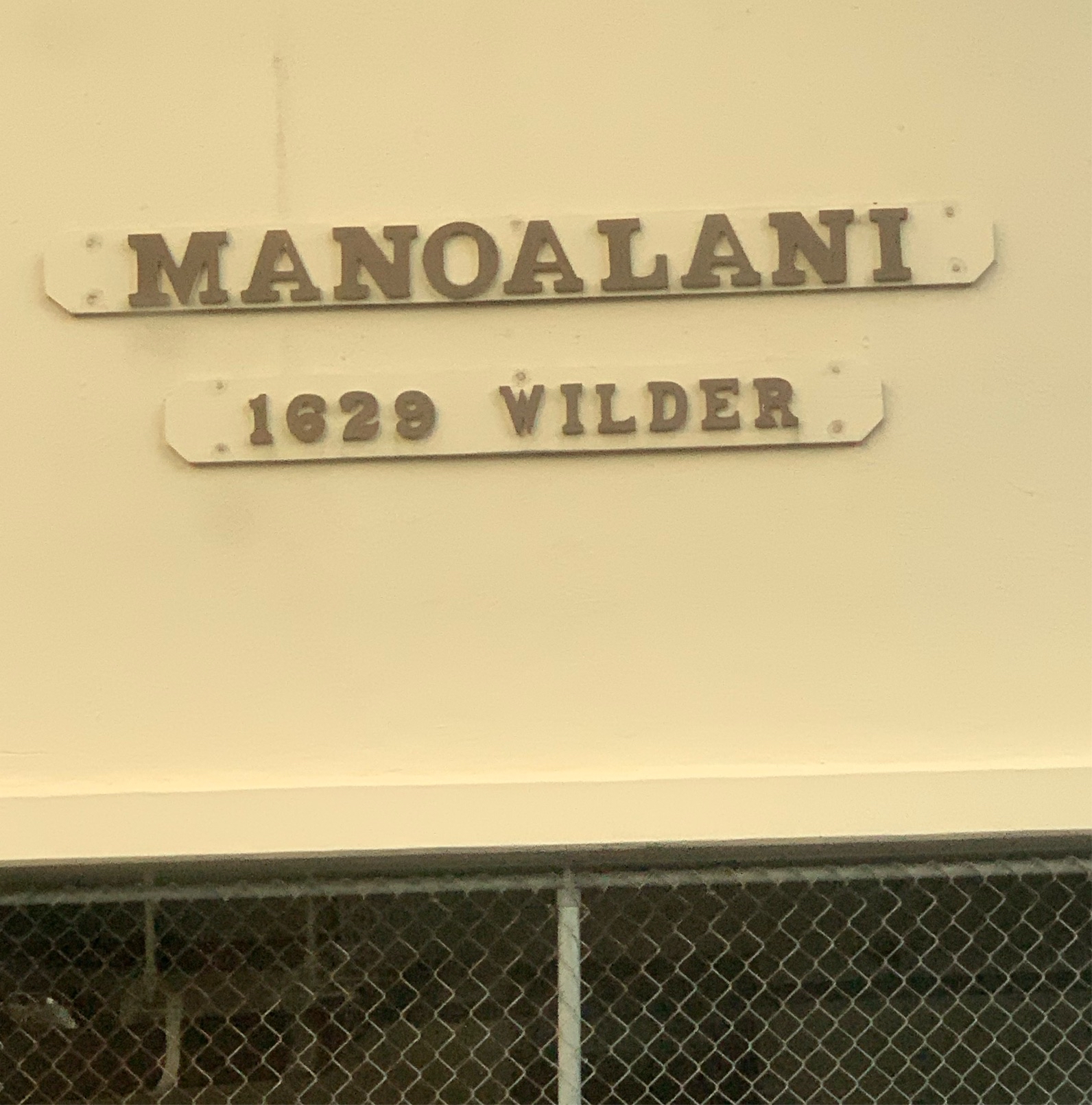
|
43437
|
|
United States
Honolulu
|
|
|
(HC)
Domain: Manoalani Apartments
Purpose: Place marker of a Hawaiian apartment complex
Audience: Passerby and Residents
Format: Wooden sign on Concrete wall
Message: "Manoalani" translates to: "Vast Heaven" and also describes the location of the apartment, being close in proximity to Manoa town.
|
Multilingual Hawaiʻi
|
|

|
43436
|
|
United States
Honolulu
|
|
|
(HC)
Domain: UH Manoa Campus
Purpose: Denoting a family event on Fridays for families to participate
Audience: Families with children
Print: Neon green flyer
Message: Announcement for a family activity night at UH Manoa
|
Multilingual Hawaiʻi
|
|